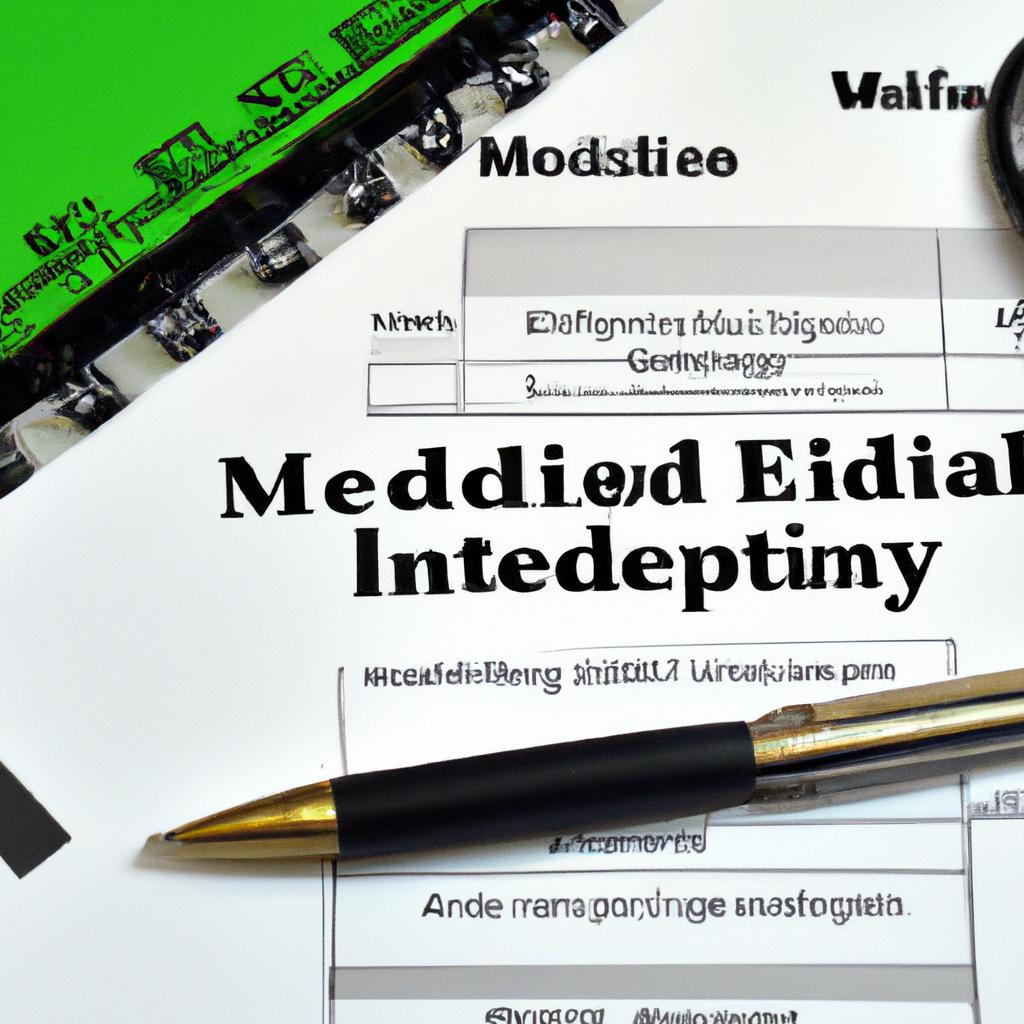In today’s ever-changing landscape of long-term care, the prospect of facing exorbitant care home fees can be a daunting and overwhelming reality for many individuals and their families. As experienced practitioners in the field of elder law, the attorneys at Morgan Legal Group understand the complexities and intricacies involved in navigating the intricate web of regulations surrounding care home fees. In this article, we will explore various strategies and techniques to help you proactively plan and protect your assets to avoid the financial burden of care home fees. Join us on this journey as we empower you with the knowledge and resources needed to secure a stable and secure future for you and your loved ones.
Strategies to Safeguard Assets Against Care Home Costs
When planning for the future, it is crucial to consider . One effective way to protect your assets is by setting up a trust. By placing your assets in a trust, you can ensure that they are not counted as part of your financial resources when determining eligibility for Medicaid benefits. This can help you qualify for assistance with care home costs while preserving your wealth for your loved ones.
Another important strategy is to engage in advance planning. By addressing potential care home costs early on, you can explore options such as long-term care insurance, which can help cover the expenses associated with care facilities. Additionally, creating a comprehensive estate plan that includes provisions for potential care home costs can provide peace of mind for you and your family.

Utilizing Trusts as a Tool for Asset Protection
When it comes to protecting your assets from potential care home fees, utilizing trusts can be a valuable tool in your estate planning arsenal. Trusts can provide a layer of protection for your assets, ensuring that they are not vulnerable to being used to cover long-term care costs. By establishing a trust, you can strategically manage your assets to minimize the impact of care home fees and safeguard your wealth for future generations.
One effective strategy is to set up an irrevocable trust, which can help shield your assets from being counted towards Medicaid eligibility. By transferring your assets into an irrevocable trust, you can create a legal barrier that prevents these assets from being considered when determining your eligibility for Medicaid coverage. This can be a crucial step in protecting your assets and ensuring that you have the resources you need to cover your long-term care expenses without depleting your estate. Consult with our experienced team at Morgan Legal Group to learn more about how trusts can be used to safeguard your assets and plan for the future.

Navigating the Complexities of Medicaid Eligibility
When it comes to , one of the most important considerations for individuals and families is how to avoid care home fees. Understanding the rules and regulations surrounding Medicaid qualification can be daunting, but with the right guidance and strategic planning, it is possible to protect your assets and ensure that you or your loved one receive the care you need without breaking the bank.
One effective strategy for avoiding care home fees is to engage in Medicaid planning early on. By working with experienced elder law attorneys, such as the team at Morgan Legal Group in New York City, you can develop a comprehensive plan that takes into account your specific financial situation and healthcare needs. This may involve transferring assets, setting up trusts, or structuring income in a way that maximizes Medicaid eligibility while minimizing the impact on your estate. Additionally, seeking legal advice can help you navigate the nuances of Medicaid rules and regulations, ensuring that you make informed decisions that protect your interests.

Understanding the Legal Implications of Transferring Property Ownership
When transferring property ownership, it is crucial to understand the legal implications involved to avoid any potential issues down the line. One of the significant concerns that individuals may have when considering transferring property ownership is how to protect their assets from care home fees. By taking the necessary steps and seeking professional advice, individuals can safeguard their assets and ensure that their property is transferred in a legally sound manner.
One way to avoid care home fees when transferring property ownership is by setting up a trust. A trust allows individuals to transfer ownership of their property while still retaining control over it. This can help protect the property from being used to pay for care home fees, as the property technically no longer belongs to the individual. Additionally, seeking advice from an experienced attorney can provide guidance on the best course of action to take when transferring property ownership to protect assets from care home fees.
Q&A
Q: What are care home fees and why do people need to consider avoiding them?
A: Care home fees are the costs associated with living in a residential care facility for elderly or disabled individuals. People may want to avoid these fees in order to preserve their assets and ensure financial stability for themselves or their loved ones.
Q: What are some strategies for avoiding care home fees?
A: Some strategies for avoiding care home fees include planning ahead with long-term care insurance, transferring assets to loved ones, setting up trusts, and exploring alternative care options, such as home care services.
Q: Is it legal to transfer assets to avoid care home fees?
A: While it is legal to transfer assets to loved ones in some cases, it is important to consult with a financial advisor or lawyer to ensure that all transactions comply with the law and do not constitute fraud or evasion of care home fees.
Q: What role does long-term care insurance play in avoiding care home fees?
A: Long-term care insurance can help cover the costs of residential care facilities, reducing or eliminating the need to pay care home fees out of pocket. It is important to research and purchase a policy that aligns with individual needs and preferences.
Q: Are there any government programs or benefits that can help with care home fees?
A: Some government programs, such as Medicaid, may provide financial assistance for individuals who qualify based on income and assets. It is recommended to research and apply for any available benefits to help offset the costs of care home fees.
Final Thoughts
In conclusion, navigating the complex world of care home fees can be a daunting task, but with the right information and planning, you can protect your assets and ensure a secure future for yourself or your loved ones. By following the tips and strategies outlined in this article, you can make informed decisions and avoid the financial burden of excessive care home costs. Remember, it’s never too early to start thinking about your long-term care needs and taking proactive steps to safeguard your financial well-being. Stay informed, stay prepared, and take control of your future today.
 According to a recent survey, the average cost of a care home in the UK is approximately £33,904 per year. This can be a significant financial burden for those who are nearing retirement or already retired, especially when it comes to planning for long-term care. Many people are unaware of the potential costs associated with care homes and may find themselves struggling to afford it when the time comes. However, there are some steps that can be taken to minimize or even avoid care home fees altogether. In this article, we will discuss how to avoid care home fees and provide valuable information to help you plan for your long-term care needs.
According to a recent survey, the average cost of a care home in the UK is approximately £33,904 per year. This can be a significant financial burden for those who are nearing retirement or already retired, especially when it comes to planning for long-term care. Many people are unaware of the potential costs associated with care homes and may find themselves struggling to afford it when the time comes. However, there are some steps that can be taken to minimize or even avoid care home fees altogether. In this article, we will discuss how to avoid care home fees and provide valuable information to help you plan for your long-term care needs.
1. Understand Your Eligibility for Government Assistance
The first step in avoiding care home fees is to understand your eligibility for government assistance. In the UK, if you have assets and savings worth more than £23,250, you will be responsible for paying for your own care home fees. However, if you have less than this amount, you may be able to receive financial support from the government. This assistance can come in the form of local authority funding or NHS continuing healthcare.
2. Plan Ahead and Consider Other Options
It is important to plan ahead for your long-term care needs and consider all available options. This can include home care, assisted living, or downsizing to a smaller, more manageable property. By considering these options early on, you may be able to avoid the need for a care home or at least delay it, which can help to minimize your overall costs.
3. Utilize Trusts and Gifting
Another way to avoid care home fees is by utilizing trusts and gifting. This involves transferring ownership of your assets to a trust or gifting them to family members. By doing so, these assets are no longer included in your financial assessment for care home fees. However, it is important to note that there are strict rules and regulations around this and it must be planned and executed carefully to be effective.
4. Review Your Pension and Benefits
If you are receiving a pension or benefits, it is important to review them regularly to make sure you are receiving all the income you are entitled to. Some types of pension or benefits may be disregarded as income when determining your eligibility for government assistance with care home fees. Additionally, if you have income from rental properties or investments, you may need to consider selling them to help cover the cost of care home fees.
5. Seek Professional Financial Advice
Navigating the complex world of care home fees can be overwhelming, and seeking professional financial advice is highly recommended. A financial advisor or an independent expert can help you understand your options and provide guidance on how to structure your finances to minimize or avoid care home fees. They can also help you with tax planning and pension advice to ensure you make the most of your financial resources.
In conclusion, it is crucial to plan ahead and explore all available options to avoid or minimize care home fees. This can include understanding your eligibility for government assistance, utilizing trusts and gifting, reviewing your pension and benefits, and seeking professional financial advice. By taking these steps, you can ensure that your long-term care needs are met without the added burden of high care home fees. Remember to always stay informed and stay on top of your finances to prepare for any potential future care needs.

